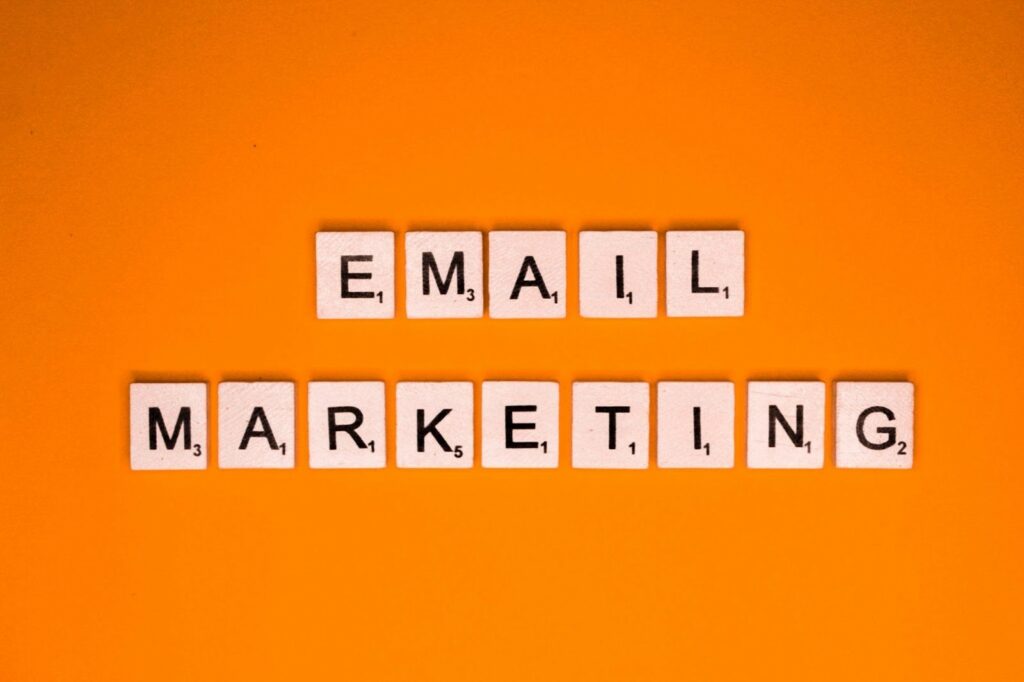Do you know? Almost 77% Of All Health Inquiries Begin At A Search Engine!
Yes, you read it right. Healthcare is a $2.5 trillion industry in the U.S. Digitalization in healthcare has made things easier for smaller healthcare providers to stand out in the competition and compete with the bigger ones without breaking the bank.
But at the same time, patients are more informed today. They can easily check different providers online, read reviews, and choose what suits them best.
It becomes very tricky for healthcare marketers to find unique ways to stand out in the competition. In this blog, we will shed some light on some of the tried and tested healthcare marketing strategies that can help you achieve this.
So, without any further discussions let’s dive in.
What is Healthcare Marketing?

Healthcare marketing uses various tools and plans to increase awareness of your services, attract patients, and retain them. It could be things like brochures, a website, or emails. The goal is to bring in people, help them with their healthcare needs, and keep them interested.
In marketing, you try different things, focus on specific areas, and check how well you’re doing to improve. There’s still room to get more people interested because they want care that feels personalized and secure.
You can use it by teaching and involving patients. Get them to choose your care. Then, give them great service so they stick around as loyal patients.
Now, let’s delve deeper into the significance of Healthcare Marketing.
What is the Importance of Healthcare Marketing?

Standing out in healthcare requires providers to embrace effective healthcare marketing strategies. It helps differentiate your services, communicate your unique value to patients, and highlight your specialized skills.
- Improves Patient Satisfaction
Patient satisfaction serves as a crucial metric for assessing healthcare quality. Online reviews and feedback are often perceived as direct reflections of care quality.
Marketing efforts can positively influence patient satisfaction by promoting a positive image and highlighting the excellence of healthcare services.
- Increases Patient Enrollment
Establishing your expertise in your field encourages patients to consistently choose and schedule appointments with you. Thus, selecting your services over other healthcare providers.
- Providing Precise Information
The accessibility of information on the Internet has made it convenient for patients to find details, although it’s not always accurate. The spreading of misinformation is a big concern.
Through strategic marketing, you have the opportunity to educate potential patients, ensuring they receive accurate and reliable information.
- Improves Brand Visibility and Awareness
Marketing boosts brand awareness and visibility. Regular marketing efforts also enhance brand retention and recall value.
After understanding the value of healthcare marketing, let’s discover practical healthcare marketing strategies that truly resonate in reaching and converting patients.
Top 9 Effective Healthcare Marketing Strategies to Reach Your Patients

For lasting success, make sure your healthcare marketing plan is up-to-date, diverse, and timely. Here are nine healthcare marketing strategies to enhance patient acquisition and elevate brand awareness in your marketing blueprint.
1. Stay Updated on Your Competitors and Healthcare Marketing Trends.

Exploring the online presence of fellow healthcare professionals can provide valuable insights on how to distinguish your own practice. Ensure that your practice, clinic, or hospital contact information is easily accessible in searches. List it across diverse directories, ranging from Yelp and Yahoo to Google.
Don’t overlook industry-specific platforms like Healthgrades. Additionally, stay informed about the digital technologies embraced by your competitors for patient engagement.
By using health apps and telemedicine, you can show patients and doctors that your practice is at the forefront of the digital healthcare revolution.
2. Create Informative Content for Both Patients and Physicians

The digital age has transformed how people seek information, leading them to the internet, even for health-related queries. You can tap into this interest by creating content that addresses potential patients’ concerns.
The good news is that you don’t always need to hire a content marketing agency for healthcare content that attracts attention.
Consider these options:
- Blogs or Articles: Share educational content on your website or explore opportunities for guest blogging on other online platforms. Writing as a guest on other blogs not only shows you’re an expert but also lets new people learn about your practice. It can also help your website’s SEO by getting links from other sites.
- Videos: Unleash the power of video, known as the king of social media. With videos you can give virtual tours, do live Q&A sessions, and demonstrate medical procedures, making things more interactive. They are accessible, so people can watch them when it suits them, making the overall experience better for patients.
3. Nurture Feedback and Maintain an Active Presence on Social Media

When talking about reviews, nothing makes a good impression like real stories about a patient’s experience. It’s important to know that the patient experience is not just about medical stuff and talking to doctors. It’s also about how your practice deals with patient worries, manages money things like bills and makes a place where people feel comfortable talking.
Soliciting feedback through surveys and seeking online reviews are essential healthcare marketing strategies. Don’t overlook the importance of maintaining an active social media presence.
Remaining engaged with patients includes being present in online spaces that they view as extensions of their community.
4. Leverage Relationships With Current and Past Patients

While many medical practices primarily aim to attract new patients, it’s crucial not to overlook the untapped potential within your existing and past patient base. Retargeting this group for promoting services and procedures is an often underestimated aspect of healthcare marketing strategies.
Furthermore, recognizing and rewarding patient loyalty can significantly enhance overall satisfaction. Your current patients, as well as referrals from other physicians and previous patients, can serve as valuable sources for growth.
Therefore, prioritize outreach to this group as a central focus in your healthcare marketing strategy.
5. Optimize Your Website

Using advanced software for your healthcare website and practice is crucial. It streamlines tasks and improves communication with patients. The goal is not only to present an appealing appearance but also to be easily discoverable, comprehensible, and trustworthy.
- On-Page Optimization
- Integrating relevant keywords in titles, headings, and body text.
- Creating high-quality, engaging content addressing patient needs.
- Crafting compelling meta tags and descriptions for each page.
- Ensuring image optimization for quick loading.
- Off-Page Optimization
- Acquiring quality backlinks from reputable healthcare websites.
- Actively engaging with the audience on social media platforms.
- Expanding brand reach through content marketing on various platforms.
- Technical Optimization
- Optimizing loading times to prevent visitor deterrence.
- Ensuring mobile responsiveness for easy navigation on various devices.
- Implementing an SSL certificate for data security.
- Making the website easily crawlable for better indexing.
- Local Optimization
- Incorporating local optimization strategies for effective targeting.
- Using location-based keywords in website content.
- Listing healthcare services in local directories.
- Participating in local community events and engaging with online health forums.
- Creating content specific to the local audience.
- Addressing local health concerns and events.
- Sharing seasonal tips relevant to the area.
6. Perform an SEO Audit

Conducting a Medical Website SEO Audit is like ensuring your digital clinic is well-organized, easily accessible, and appealing to online visitors. Just as a clinic must be clean and efficiently structured, your website’s navigation and layout should be user-friendly, allowing visitors to find information effortlessly.
Incorporating relevant keywords into your content is akin to using specific medical terms, making your website easily discoverable by search engines. Quality content, similar to informative brochures, ensures accurate and helpful information, fostering visitor engagement and trust.
Backlinks, akin to recommendations, enhance your website’s credibility, while prioritizing security with “https://” ensures user data protection and boosts search engine rankings.
Regularly conducting this “checkup” ensures your medical website remains in top shape, attracting more visitors and providing a positive online experience akin to a well-maintained physical clinic.
7. Create Healthcare Marketing Strategies Based On Patient’s Feedback

The COVID-19 pandemic has made a shift in how patients approach their healthcare choices. Now, more than half of consumers are giving increased attention to the quality of care they receive.
Over a third of them are reading doctor reviews more frequently, and a similar percentage is researching hospital quality more than they did before. Equally significant for potential patients is how physicians respond to their feedback, whether positive or negative.
When a doctor doesn’t respond to reviews, it might suggest that patient experiences aren’t appreciated. It’s important for your hospital to reply to reviews, thank for positive feedback, and show understanding to those who might not be happy with the treatment they received.
8. Utilize Email Marketing to Your Advantage

Email marketing is a powerful tool for healthcare, delivering personalized health information and service updates. To implement this effectively, build a subscriber list by collecting patient email addresses with consent.
Segment your audience for targeted campaigns and craft engaging content, including health tips and reminders. Personalize emails, use a reliable marketing platform with automation and schedule regular communications.
Ensure mobile-friendly designs, comply with privacy laws, and regularly analyze performance for improvement.
By providing valuable information and consistent communication, email marketing enhances patient engagement and keeps your healthcare services top-of-mind, positively transforming communication and retention approaches.
Alos Read: What you need to know about healthcare email marketing
9. Utilize Google Ads

Effectively utilizing Google Ads for healthcare marketing involves strategic steps.
- Research and choose keywords that your target audience might use when searching for healthcare services.
- Structure your campaigns based on specific services or specialties.
- Use extensions to provide extra details, like your location or unique services.
- Make sure your ads are shown to the right people by specifying geographic locations.
- Exclude irrelevant searches using negative keywords.
- Link your ads to optimized landing pages with helpful information.
- Consider remarketing to connect with people who have visited your site before.
By following these steps, healthcare providers can effectively use Google Ads to reach and engage their target audience.
Do’s and Dont’s Of Healthcare Marketing Strategies

Implementing effective healthcare marketing strategies requires attention to key dos and don’ts to ensure success.
Do Share Health-Related Content From a Reputable Source
In healthcare marketing, it’s important to share trustworthy health-related content. This means posting information, articles, or media from reliable sources in the healthcare industry.
By doing this, healthcare organizations show that they provide accurate and dependable information. It helps build trust with the audience, as people know they can rely on the organization for credible content.
This approach not only establishes authority but also emphasizes the commitment to sharing reliable information that contributes positively to the audience’s well-being.
Don’t Give Personalized Medical Advice
Healthcare providers focus on helping people stay healthy, but social media isn’t the right place for diagnosing or treating medical issues.
Sometimes, people might ask health questions or share symptoms on your social media pages. If someone has a health concern, it’s crucial to suggest scheduling an in-person appointment for the right care.
Make sure your organization’s website and contact information are easy to locate on your social media pages. You could also mention that no medical diagnosis or treatment will be provided online.
This helps set clear expectations and emphasizes the importance of seeking professional advice in person for accurate and safe healthcare.
Do Keep Patients Abreast of Real-Time Changes That Could Affect Them.
Sometimes, you might need to let many patients know about important updates. These updates could be anything that might affect a patient’s ability to get medical care at your facility.
For example, any changes in the clinic hours? or has one of the offices moved temporarily to another part of the building?
To inform patients about changes, you can pin a post at the top of your social media page so it’s the first thing they see.
Consider using automated phone calls or emails, along with social media updates, to ensure patients know about any changes that might affect their visit.
Don’t Violate Laws Safeguarding Patient Privacy
In the world of healthcare, it’s crucial for companies to follow privacy laws because medical matters are sensitive. One key set of rules is called HIPAA laws, and they’re designed to keep patient information private.
This means not sharing anything on social media that could reveal who a patient is without their permission – like photos or names. If a patient wants to be part of a social media campaign, they have to clearly say ‘yes’ in writing to the healthcare provider. This ensures that everyone’s medical details stay private and secure.
Do Set Clear Expectations for Both Your Admins and Followers
Using social media responsibly can be really beneficial for your organization. But, it’s crucial to follow the rules, especially when it comes to HIPAA (Health Insurance Portability and Accountability Act).
To avoid any problems, make sure your employees get training and a handbook with guidelines on how to use social media. This includes people handling your official social media accounts and even those using their personal profiles.
This way, everyone stays on the same page and follows the rules to keep everything safe and secure. Limit admin permissions for Company Pages and stay updated on best practices to minimize risks.
If you encounter anything offensive or inappropriate, promptly remove it from your social media page. Regularly monitor comments and be quick to address any violations.
This proactive approach helps maintain a positive online environment and ensures compliance with privacy regulations.
Don’t Operate Independently
Social media is a powerful tool; it helps you stay connected by posting regular updates. But just posting the updates regularly is not enough. You should also keep an eye on followers feedback to understand your patients’ questions and concerns.
For example, if followers are asking about maintaining a healthy lifestyle, it’s a good opportunity to create a blog post on your organization’s website and share it on social media. This way, you can offer general but timely health advice.
If patients leave reviews on your social media pages, use that feedback to identify what your organization is doing well and where you can improve.
Remember, social media is not just for sharing your own stuff—it’s part of a bigger conversation. Use relevant hashtags, share content from other healthcare facilities, and encourage interaction from both patients and employees.
Ask your team to share posts from your organization’s page to their personal pages as well. This way, you can create a more engaging and informative online presence.
Do prioritize an inclusive approach, Acknowledging Its Universal Importance
Make sure everyone feels included in your communication.
For example, when talking about esthetic services, include both women and men in your message. Let people know that your services are available to everyone.
Remember that lots of people will see your content, so try to make everyone feel welcome. This way, your healthcare marketing shows that it’s for a diverse group of people.
Don’t Just Inform
In addition to sharing information about your services, consistently emphasize to online users the importance of avoiding self-diagnosis for health concerns. Encourage them to schedule an appointment with your company instead.
This is crucial as individuals might use social media for self-diagnosis and solely seek information about their condition on their healthcare profile without taking the step to book an appointment. Regular reminders help redirect their focus towards seeking your professional services.
Do Utilize Social Media to Actively Engage with Patients
One of the key advantages of social media is its potential to enhance patient engagement. Hospitals and medical practices can showcase their commitment to patient satisfaction by actively addressing feedback, including negative comments.
It is essential for healthcare providers to extend their efforts in social media engagement across various platforms such as Facebook, Instagram, Twitter, and others.
Don’t Overpromise Results
Avoid making false promises about outcomes that cannot be realistically achieved, as it may give patients false expectations and lead to disappointment. Providing accurate information about potential outcomes is crucial to building trust and avoiding legal issues.
Prioritizing honesty in communication helps patients make informed decisions and fosters a positive relationship between healthcare providers and patients.
Over to You
Juggling with various responsibilities in the healthcare center, makes focusing on healthcare marketing strategies challenging. When it comes to getting the desired results here, the only thing that works is consistency.
Because in healthcare marketing, it’s not just about reaching people; it’s about creating a harmony of well-being that echoes beyond screens. If you need any help with your healthcare marketing, you can get in touch with a Healthcare Marketing agency that helps you boost your online presence ensuring you rank in relevant search results.



